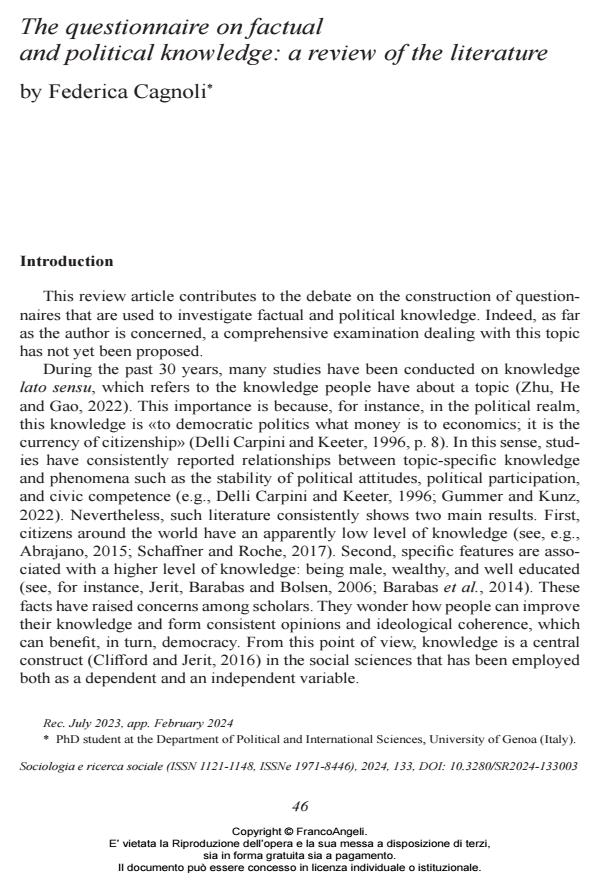The questionnaire on factual and political knowledge: a review of the literature
Journal title SOCIOLOGIA E RICERCA SOCIALE
Author/s Federica Cagnoli
Publishing Year 2024 Issue 2024/133
Language English Pages 21 P. 46-66 File size 252 KB
DOI 10.3280/SR2024-133003
DOI is like a bar code for intellectual property: to have more infomation
click here
Below, you can see the article first page
If you want to buy this article in PDF format, you can do it, following the instructions to buy download credits

FrancoAngeli is member of Publishers International Linking Association, Inc (PILA), a not-for-profit association which run the CrossRef service enabling links to and from online scholarly content.
Political and factual knowledge are central concepts for political attitudes, civic competence, and the like. Although they have been studied for decades and employed as dependent or independent variables, a significant theme has not been analysed in detail: The construction of knowledge questionnaires. Through a lit- erature review, this article contributes to this discussion by presenting issues in questionnaires that hinder the study of this knowledge. Several significant themes have emerged to help implement questionnaires, ranging from the knowledge gender gap to online misbehaviour. Yet, the literature also emphasises the need for delving into some of these issues and including different countries in the analysis
Federica Cagnoli, The questionnaire on factual and political knowledge: a review of the literature in "SOCIOLOGIA E RICERCA SOCIALE " 133/2024, pp 46-66, DOI: 10.3280/SR2024-133003